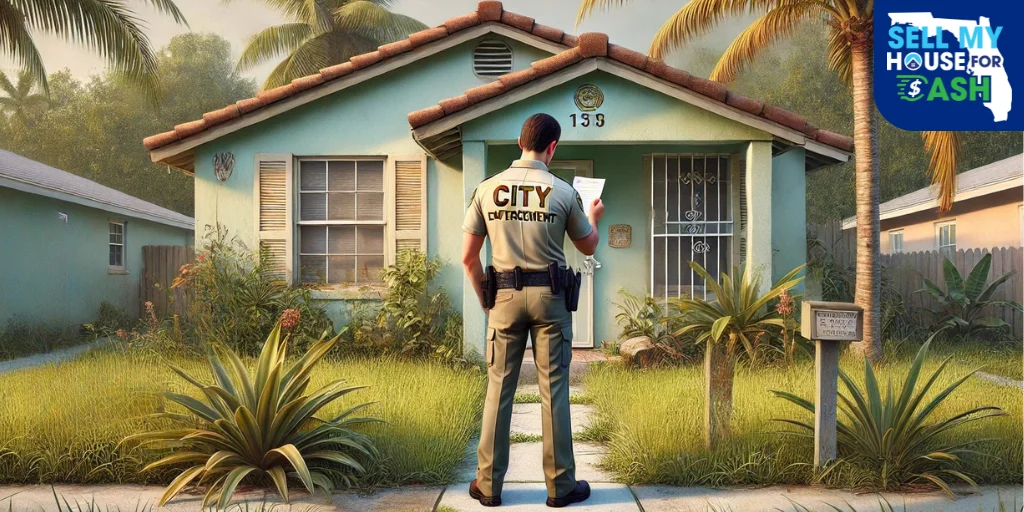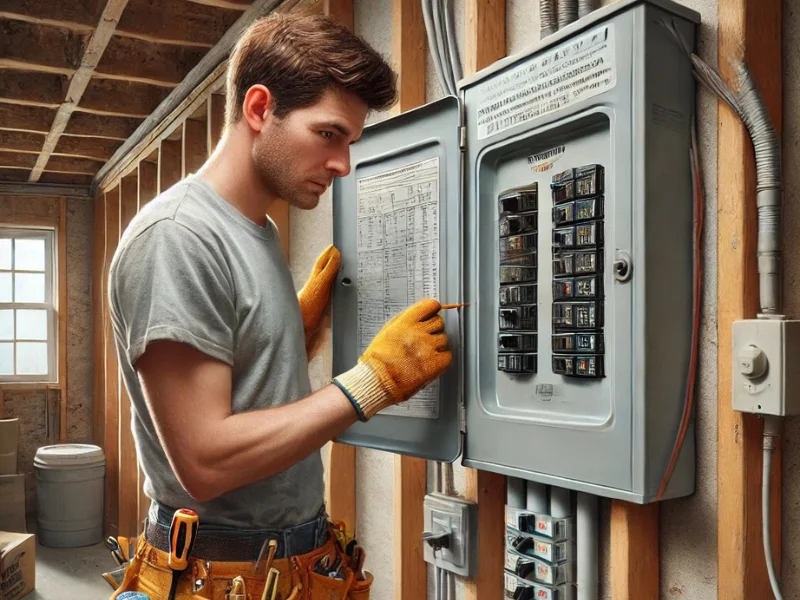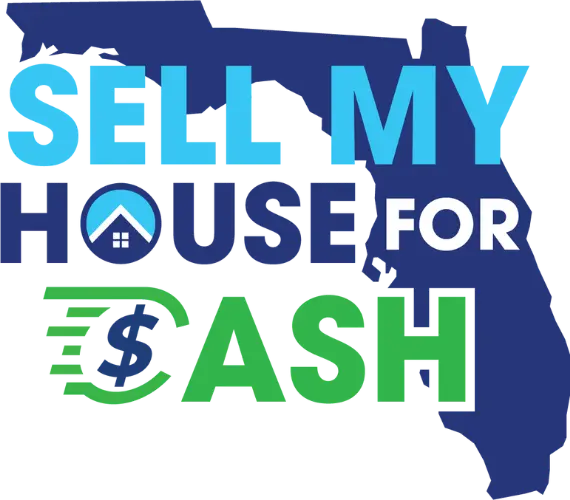When the City Starts Sending Notices, It Gets Real Fast
Getting a letter—or worse, a red tag—from your local code enforcement office can instantly turn a livable house into a legal headache.

Whether it’s unpermitted work, safety issues, or years of deferred maintenance, you might suddenly find yourself:
- Facing daily fines that grow by the week
- Being told to pull permits, hire contractors, or fix violations you didn’t even cause
- Dealing with inspectors who give you deadlines—but no clear path to resolution
- Worrying if you can even sell the house in this condition
Maybe the violations were there when you inherited the property. Maybe you tried to fix things yourself and didn’t pull a permit. Or maybe the house just fell into disrepair over time.
Whatever the cause, you’re now stuck between expensive repairs, endless paperwork, and a city that won’t let up.
👉 This guide is here to show you another path—how to sell your house even with open violations, so you can move on without fixing everything first.
Common Code Violations That Can Derail a Home Sale
Florida cities and counties enforce strict codes to maintain health, safety, and appearance standards. When your home doesn’t meet them, the violations stack up fast—and they don’t just go away.
Here are some of the most common code violations we see:
🚫 Unpermitted Work
Any electrical, plumbing, or structural work done without proper permits—even if done years ago—can lead to fines or stop a sale altogether.
🌱 Overgrown Grass or Yard Debris
Neglected landscaping may seem minor, but most cities issue fines for tall grass, dead trees, or excessive junk in the yard.
🏚️ Exterior Deterioration
Chipped paint, broken windows, roof damage, and visible rot can trigger violations for unsafe or unsightly conditions.
🧱 Unsafe Structures or Additions
Sheds, garages, carports, or room additions that don’t meet code or weren’t permitted can result in stop-work orders or penalties.
🚽 Plumbing, Septic, or Drainage Issues
Backups, leaks, or outdated systems may not only be code violations—they can become serious health concerns.
🧾 Open Violations, Fines, or Liens
If you've received letters from the city or code enforcement, those fines accrue daily and can turn into liens if left unpaid.
👉 Many homeowners don’t even realize they have code violations until they try to sell—or the fines start piling up. If that’s you, don’t panic. We buy homes in any condition, even with open violations, permits, or city liens.
The Problem with Listing a House That’s Not to Code
You might be thinking, “Why not just list the house and see what happens?” But when a home has open violations, expired permits, or safety concerns, listing with an agent often leads to delays, lowball offers, or no sale at all.
Here’s why:
🔍 Disclosures Kill Interest
In Florida, you're legally required to disclose known code violations, structural problems, or unpermitted work. That alone scares off many traditional buyers.
📋 Inspections Expose Everything
Even if the buyer is initially interested, their inspector will flag every issue—causing renegotiation, delays, or a complete deal collapse.
🏦 Financing Gets Denied
Most buyers use a mortgage to buy a home, and lenders won’t approve a loan on a property with major violations, missing permits, or health/safety issues.
💼 Agents May Decline the Listing
Realtors know these properties are hard to sell. Many won’t take the listing unless the seller agrees to fix the violations first—which could mean spending thousands upfront.
💸 Price Drops and Carrying Costs Add Up
Even if it does go under contract, expect months of holding costs, multiple price reductions, and the stress of “will it close or not?”
If you don’t have the time, money, or energy to fix everything — there’s another way.
👉 If agents have turned you away or you want to avoid listing altogether, here’s how to sell a house without a realtor in Florida—especially when your property isn’t up to code.
✅ At Sell My House For Cash Florida we buy homes with open code violations, as-is. No repairs. No permits. No inspections. Just a fair cash offer and a fast, no-hassle close.
Can You Sell a House with Code Violations?
Yes, But You Need the Right Buyer
If you’ve been told you can’t sell your house until every violation is resolved—that’s only true if you’re selling to a traditional buyer using a bank loan.
Here’s why:
🔸 Banks Require Homes to Meet Code
If your buyer is getting a mortgage, their lender will likely require all violations to be fixed before closing. That means you’d need to pull permits, pay off fines, and pass city inspections—before the sale goes through.
🔸 Traditional Buyers May Back Out
Even if they love the house, once a home inspection reveals code issues, most buyers walk away—or ask for big credits and repairs.
🔸 Cash Buyers Can Skip the Red Tape
At Sell My House For Cash Florida, we work with investors who buy properties as-is, violations and all. We’ll:
- Do the research on your violations
- Factor fines, liens, and permit issues into our offer
- Close without requiring you to fix a thing
Learn more about what it really means to sell your Florida house as-is and how it affects your offer.
✅ You don’t have to clear up every issue or fight the city yourself. We’ll take it over from here.
👉 Still weighing your options? Here’s a clear look at the pros and cons of accepting a cash offer on your house—so you can decide what’s right for you.
Understanding the Numbers Behind a Cash Offer
If you’re dealing with code violations, fines, and needed repairs, one of the first questions on your mind is:
How much am I actually going to walk away with?
Let’s break it down with a real-world example:
🏠 After-Repair Value (ARV): $380,000
🔧 Estimated Repairs: $50,000
📑 City Fines or Code Liens: $20,000
⏳ Selling, Holding, Closing Costs, and Profit: $124,324
💰 Your Cash Offer: ~$185,000
This offer factors in everything—repairs, violations, and the risk an investor takes on. The best part?
✅ You don’t have to pay anything out of pocket
✅ No contractors, no permits, no cleanup
✅ We’ll show you the math behind the offer—line by line
We want you to understand exactly how we got to that number, so you can decide if it works for you.
When Code Violations Turn Into Legal and Financial Headaches
Unpaid code fines don’t just sit there—they often turn into liens recorded against your property.
Here’s what that means for you:
🔗 A lien is a legal claim against your house—often from the city—making it harder to sell
💸 These can grow quickly with daily fines or added legal fees
⚖️ Most traditional buyers (and lenders) won’t touch a property with open liens
📉 You may have equity on paper, but liens chip away at your net proceeds
But don’t panic—we deal with this all the time.
✅ We’ll pull the lien report, calculate what’s owed, and include it in our offer
✅ We can pay off the liens at closing so you don’t have to
✅ You won’t need to negotiate with the city or hire an attorney
Need help understanding liens and how they affect your ability to sell?
👉 If your code violations have turned into liens, contact us to explore your options—or check out our full guide on selling a house with a lien in Florida.
From Violations to Closing
Here’s What to Expect
Worried your house won’t pass inspection or close because of open violations? You don’t need permits, repairs, or city approval to sell to us.
Here’s how the process works:
📋 Step 1 — We Review the Property and Violations
You tell us what you know (or don’t know) about the issues. We’ll pull public records and city reports to understand the full scope.
💰 Step 2 — We Make a Transparent Cash Offer
You’ll get an offer that clearly explains the math:
- After-repair value
- Estimated repairs
- Lien or fine deductions
- Holding and resale costs
- Investor profit
🛠️ Step 3 — We Do Our Own Walkthrough
There’s no need for city inspectors. Our local partner investors or contractors will do a quick walkthrough to assess the property’s condition, any safety concerns, and deferred maintenance.
As long as there are no major surprises beyond what we discussed on the initial call, your offer won’t change. We’re not here to nickel-and-dime you—but if we uncover significant structural, electrical, plumbing, or foundation issues, we may need to revise the offer accordingly.
🏁 Step 4 — We Handle the Closing
On average, we can close in just 3–4 weeks. At closing, we’ll take care of any outstanding fines, city liens, and mortgage payoff (if there’s a balance). If you own the property free and clear, all proceeds go directly to you.
No more city notices. No more stress. We’ll handle the repairs and violations after the sale—so you can move on without lifting a finger.
👉 Want to see exactly how our process works from start to finish?
Check out our How It Works page for a full breakdown.
Want to Go Deeper?
Legal, Permit & Code Violation Resources
If you’re trying to untangle Florida’s building codes, disclosure laws, or municipal violations, these expert resources can help you understand what you’re dealing with—and what to do next.

🛠️ Common Code Issues That Trigger City Action
- 5 Common Building Code Violations – Family Handyman
- Top Plumbing Violations in Florida – Dovis Plumbing
- Common Electrical Problems in Florida Homes – Court Electrical Service
🧾 Disclosure & Legal Considerations in Florida
- Florida Home Seller Disclosure Obligations – Nolo
- Lead-Based Paint Disclosure Rule (Federal) – EPA
- Florida Code Violation Laws & Remedies – Revah Law
- Florida Statute 162.21 – Enforcement of Code – Official Florida Legislature
🏘️ Selling With Violations or Legal Complications
- Selling a House With Code Violations – HomeLight
- What to Do If You Receive a Code Compliance Violation in Florida – Lopez Law
- Florida Municipal Lien Search – Municipal Lien Search
💡 Tip: You don’t need to read every article—but if you’ve been hit with a violation or aren’t sure about your obligations, a few minutes of research can go a long way.
Wondering How It Works? We’ve Got the Answers
If you’re dealing with code violations, you probably have more questions than answers. Here are some of the most common things Florida homeowners ask us:
❓Can I legally sell a house with active code violations?
Yes. You can sell a house as-is with open code violations—but not to just anyone. Traditional buyers using a mortgage typically can’t close unless the violations are cleared. Cash buyers (like us) don’t have that limitation. We’ll factor violations into our offer and handle the issues after closing.
❓Do I have to disclose the violations to the buyer?
Yes. In Florida, sellers are required to disclose known issues, including code violations, unpermitted work, and city enforcement actions. We expect it—and it won’t scare us off.
❓Will I have to pay off the fines or liens before I can sell?
Not if you’re selling to us. We can settle fines, violations, or city liens at closing using the sale proceeds. You won’t have to come out of pocket.
❓Can I sell if I inherited the property and don’t know what’s wrong with it?
Absolutely. We can do the legwork—pull permit history, inspect the property, and research violations for you. We’ve helped many sellers who inherited homes with issues they didn’t create.
❓What if there are also liens on the title?
Liens don’t automatically kill a deal—but they do need to be addressed. We’ll review the lien report and include any payoff in your cash offer.
❓Do I need to bring the house up to code or make repairs?
Nope. As-is means as-is. You don’t need to fix anything. We’ll do a private inspection (no city involved), calculate repair and violation costs, and give you an offer that reflects those numbers. You’ll know exactly what to expect—before you commit to anything.
❓Is there any cost or obligation to get an offer?
Zero. We’ll review the property, talk through your situation, and show you how the numbers work. There’s no pressure, no obligation, and no hidden fees.
❓What if the city has placed a stop-work order or deemed the house unsafe?
You can still sell, but only to a buyer who understands how to handle those issues. We’ve purchased homes with stop-work orders, red tags, and unsafe structure designations. You don’t need to clear them—we’ll take care of it after closing.
❓Can you still buy my house if the code violations are from 5–10 years ago?
Yes. We’ve bought many homes with old, unresolved violations. Even if the fines have grown or the city hasn’t contacted you in years, we can still make an offer and handle cleanup with the municipality.
❓Will the city come after me after I sell?
No. Once we close, you’re off the hook. We take over full responsibility for the property, including any ongoing enforcement or repair requirements. It’s a clean break.
❓I already tried listing the house but buyers backed out. Can you still help?
Definitely. We regularly help sellers who had deals fall through due to inspection issues or financing problems related to violations. Since we buy as-is and pay cash, you won’t have to go through that again.
✅ Still have questions?
👉 Visit our full FAQ page for more answers, or call us anytime at 561-571-8794 to talk it through. We’re here to help—whether you end up selling or not.
Code Violations Aren’t the Only Thing Standing in the Way
If your property has code issues, there’s a good chance you’re dealing with more than just a notice on the door. Whether it’s legal trouble, property damage, or financial pressure, these guides can help you understand your options and find the simplest path forward.
Code fines piling up and missed mortgage payments too? Here’s how to stop foreclosure and sell fast.
Inherited a house with violations? Here’s how to sell through probate—even if it is not up to code.
Dealing with renters and code issues? Here’s how to sell a tenant-occupied home with violations.
Splitting up and stuck with a house full of code problems? Learn how to sell fast during divorce.
Leaving town and don’t have time to fix code issues? Here’s how to sell quickly and move on.
Fires often trigger violations — here’s how to sell a fire-damaged house without doing repairs.
Water damage usually leads to citations — here’s how to sell with water-related code violations.
You don’t have to fix everything — here’s what you can skip even with violations.
Code violations often mean serious repairs — here’s how to sell a house in rough shape.
Code fines stacking up? Bankruptcy might be on your mind — here’s how it compares to selling.
Even with violations, taxes may apply — here’s what to know about capital gains when selling.
Got liens in addition to violations? Here’s how to sell a house with both problems in place.

Alain Perez-Majul
Juan and Castilia are awesome! We were dealing with my parent's property here in Florida, and they went above and beyond when buying it from us. The process was quick and easy, we didn't have to do a thing to the house, and we closed within a couple of weeks. Thanks, guys!
Not Sure What to Do Next?
We’ll Help You Sort It Out
Code violations can feel like a wall between you and your next chapter—but they don’t have to be.
Whether it’s an old permit that was never closed, mounting fines from the city, or years of deferred maintenance, we’ve seen it all. Sell My House For Cash Florida has helped sellers move on without spending another dollar fixing things up.
You don’t need to chase down contractors or fight with the city.
Let’s look at what’s going on, walk through the numbers, and figure out the best way forward—together.
Most of the homeowners we help never meant to let things get out of hand. But life happens. Cities don’t wait. And violations can stack up fast.
We’ve worked with sellers across Florida in situations like:
👵 Elderly homeowners
People on fixed incomes who can’t afford the repairs the city demands.
🧱 Landlords with tenant damage
Properties cited for unpermitted work, neglected maintenance, or unsafe conditions.
🌴 Out-of-state owners
Folks who moved away, unaware that violations and fines were piling up.
🧾 Inherited homes in probate
Older properties passed down with open permits, failing systems, or illegal additions.
🔥 Damaged homes with city enforcement
Fire, flood, or storm-damaged homes that triggered code actions or safety complaints.
No matter the cause, we’ll help you untangle the mess and move forward—with no judgment, no pressure, and no surprises.
We’ve bought properties with code issues all across Florida, including:
👉 Learn more about us and how we help sellers like you.
📝 Want to see where the numbers land?
Fill out the form below to get your no-obligation cash offer. We’ll talk it through, explain every line of the offer, and help you decide what makes the most sense for your situation—on your timeline, with zero pressure.


